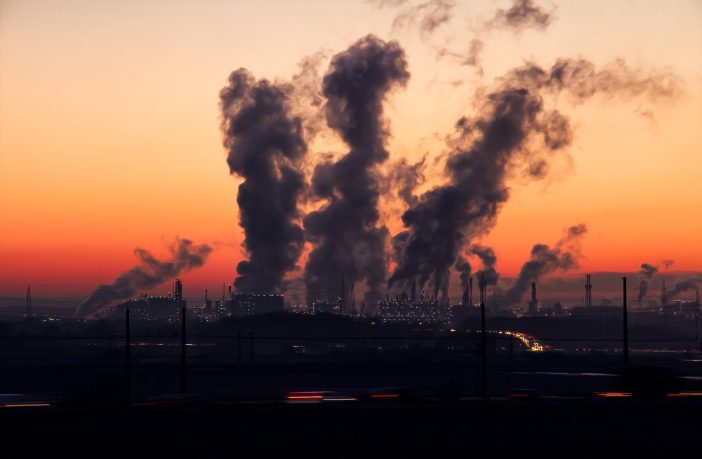- SASOL is the country’s second biggest air polluter after Eskom.
- SASOL pumps out more emissions each year than Portugal, and has been identified as one of the 100 fossil fuel companies linked to 71% of global industrial greenhouse gas emissions since 1988.
- This week SASOL was accused of intentionally polluting the Vaal River with vanadium and potassium carbonate.
Sasol, a listed company on the Johannesburg Stock Exchange, produces oil and chemicals from coal and gas. The petro chemical giant is the country’s second biggest contributor to greenhouse gas (GHG) emissions after Eskom. It pumps out more emissions each year than Portugal, and has been identified as one of the 100 fossil fuel companies linked to 71% of global industrial greenhouse gas emissions since 1988.
This week, an official at Sasol Secunda, made a startling admission at the South African Human Rights Commission’s (SAHRC) inquiry into the contamination of the Vaal River, held at Constitutional Hill in Johannesburg. He accused the petrochemical giant of intentionally polluting the Vaal River with vanadium and potassium carbonate.
“Sasol excretes a type zero waste which is not allowed to be landfilled at all. And if it (Sasol) wishes to do so, it will have to treat it (the waste) to be type one, to reduce harm,” he said.
The whistle-blower’s claims were denied by the petrochemical giant at a South African Human Rights Commission (SAHRC) inquiry on Wednesday.
The SAHRC established the inquiry in September 2018 to determine whether the pollution of the river amounted to an infringement of basic human rights and to establish what caused the contamination in the first place.
Responding to the allegations, Sasol’s head of group media relations, Alex Anderson, said polluting the river would “not only be irresponsible, but constitute offences and invoke serious criminal and administrative sanctions under the suite of environmental laws we are subject to. Sasol’s approach to environmental compliance management continues to be transparent and collaborative, and we engage with authorities regularly through established forums and also proactively, where we anticipate or identify compliance challenges”.
In December 2018, shareholders representing communities from across SA and Mozambique grilled the Sasol board for two hours at their annual general meeting. They raised concerns about the petrochemical group’s environmental record and greenhouse gas emissions, which they said presented a major risk for investors and employees.
The group proposed a resolution calling on Sasol to prepare an annual report detailing how it is assessing and ensuring long-term corporate resilience in a future low-carbon economy. Sasol refused to table the resolution on the basis of legal advice.
Author: Bryan Groenendaal











